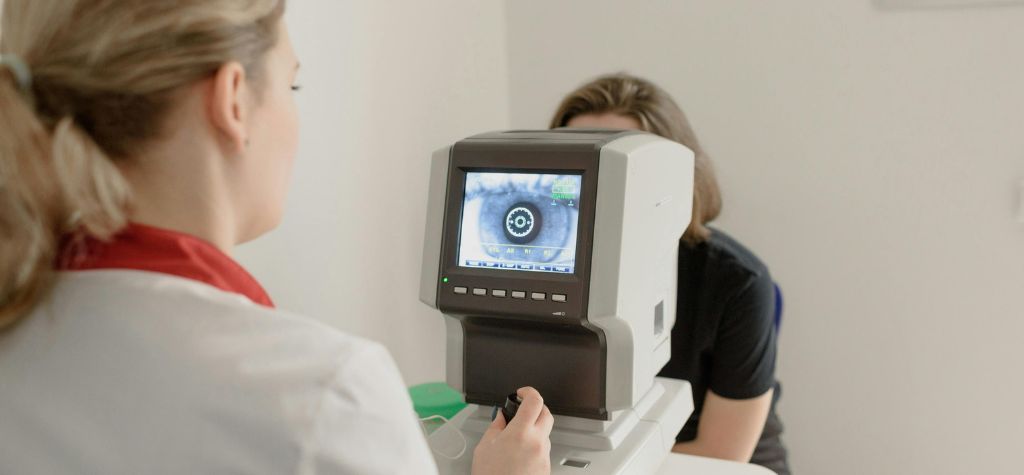Why Glasses and TV Viewing Go Hand-in-Hand

The Role of Prescription Glasses in Visual Clarity
Prescription glasses are designed to correct your vision based on how your eyes naturally focus light. When watching TV, especially from across the room, your eyes rely on their ability to see clearly at a distance. Glasses help ensure that the image you see is crisp, detailed, and strain-free.
Distance Vision and TV Screens
TV viewing often happens from several feet away, which classifies it as distance vision. If your glasses are meant for seeing far, taking them off while watching TV can force your eyes to work harder, potentially leading to fatigue and strain.
Common Vision Problems Affected by TV Viewing
Nearsightedness (Myopia)
If you’re nearsighted, objects far away—like your TV—can appear blurry. Without your glasses, you’ll likely find yourself squinting or leaning forward to see clearly.
Farsightedness (Hyperopia)
Farsighted people may still struggle with visual fatigue when looking at screens for long periods. Watching TV without glasses might not seem problematic at first, but over time, the effort can lead to discomfort.
Astigmatism
Astigmatism distorts vision at all distances. Watching TV without corrective lenses can result in double vision, headaches, or persistent strain—even if you think you can see “well enough.”
Symptoms That May Occur Without Glasses

Eye Strain and Fatigue
Without proper correction, your eyes constantly overwork to adjust focus. That leads to tired, dry, and sometimes burning eyes after a movie or binge-watch session.
Headaches and Blurred Vision
Long hours of watching TV without the right eyewear can cause headaches and momentary blurriness, making relaxation anything but enjoyable.
Squinting and Poor Posture
People tend to squint or lean closer to the screen when they can’t see properly. This leads to poor posture, neck pain, and even worsens the problem over time.
Benefits of Wearing Glasses While Watching TV
Sharper Images and Better Detail
You’ll notice clearer outlines, vibrant colors, and finer details—like facial expressions or text—when watching TV with your glasses on.
Reduced Eye Discomfort
By reducing the need for your eyes to adjust, glasses minimize eye strain, allowing you to enjoy your screen time comfortably.
Better Posture and Comfort
Proper vision keeps you from leaning forward or squinting, promoting good posture and helping you relax more naturally.
The Risks of Watching TV Without the Right Eyewear

Worsening Vision Over Time
Although not wearing your glasses doesn’t “ruin” your eyes directly, it can lead to habits that increase visual strain and discomfort—possibly worsening vision faster in some individuals.
Incorrect Prescription Usage
Wearing old or incorrect prescriptions can be just as bad as not wearing glasses at all. Make sure your eyewear is up-to-date for maximum benefit.
Blue Light and Screen Exposure
What Is Blue Light?
TVs emit blue light—a high-energy visible light that may affect sleep patterns and cause digital eye strain, especially in dim environments.
Do You Need Blue Light Glasses for TV?
Blue light glasses can help reduce exposure, especially if you watch TV late at night. While not essential for everyone, they’re a good choice if you often experience sleep issues or eye strain.
Children, TV, and Glasses
Eye Development and Screen Time
Children’s eyes are still developing, and prolonged TV viewing without correction can strain their vision more intensely than adults’.
Why Glasses Are Crucial for Kids
If your child has a prescription, they should wear glasses while watching TV to avoid squinting, poor posture, and worsening eyesight.
Tips for Comfortable TV Viewing with Glasses
Screen Distance and Angle
Keep a distance of 6–10 feet from your TV, ideally sitting at eye level. This reduces eye strain and maximizes the clarity your glasses provide.
Anti-Reflective Coatings
These coatings reduce glare from the screen and room lighting, helping to improve visual comfort during TV time.
Keeping Lenses Clean and Scratch-Free
Smudges or scratches can cause distortions, making your eyes work harder. Clean your glasses regularly with a microfiber cloth and gentle solution.
When to Consult an Eye Specialist

Signs You Might Need a New Prescription
- Blurry vision even with glasses
- Frequent headaches after screen time
- Squinting or leaning in despite correction
Annual Eye Exams and TV Habits
Regular checkups help ensure your prescription is right and that your TV viewing habits aren’t harming your vision.
Frequently Asked Questions (FAQs)
1. Should I wear my glasses all the time, including while watching TV?
If your glasses are for distance vision or you experience eye strain, yes—wear them during TV time.
2. Can watching TV without glasses harm my vision?
It won’t damage your eyes, but it can cause strain, fatigue, and bad habits that worsen your comfort and posture.
3. Are blue light glasses helpful for nighttime viewing?
Yes. They reduce blue light exposure and may improve sleep and comfort during nighttime watching.
4. What distance should I sit from the TV with glasses?
Sit between 6–10 feet from the screen, depending on its size. Make sure the TV is at eye level for optimal viewing.
5. Can TV make my eyesight worse if I don’t wear glasses?
Not directly, but constant strain may speed up the need for stronger prescriptions, especially if you’re squinting often.
6. Do kids need to wear glasses while watching TV?
Absolutely. Proper vision is crucial during developmental years. Not wearing glasses can affect learning and posture.
Conclusion: Your Glasses Are More Than Just Lenses
Wearing your glasses while watching TV isn’t just about clearer vision—it’s about comfort, health, and preventing long-term problems. Whether you’re nearsighted, farsighted, or somewhere in between, keeping those lenses on while you relax can make all the difference.
So next time you sit down for a Netflix night or sports marathon, don’t forget your specs—they’re working just as hard as your eyes are.

